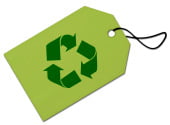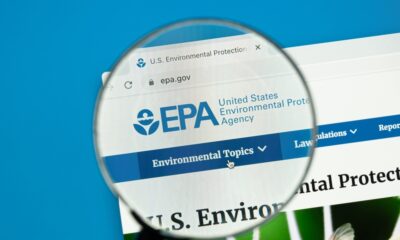

Features
Education key to achieving a “zero waste” Scotland
Guest author, Jamie Mckenzie, writes how official statistics on household waste by the Scottish Environmental Protection Agency (SEPA) continue to reflect the Scottish Government’s drive towards achieving Scotland’s ambitious waste goals.
Household waste regulation is a critical component of the Scottish Government’s Zero Waste Plan. This is a waste policy strategy launched in 2010 with a vision for changing the individual, public and business mind-set towards viewing all municipal waste as a potential resource, not a dormant by-product of our activities.
Guest author, Jamie Mckenzie, writes how official statistics on household waste by the Scottish Environmental Protection Agency (SEPA) continue to reflect the Scottish Government’s drive towards achieving Scotland’s ambitious waste goals.
Household waste regulation is a critical component of the Scottish Government’s Zero Waste Plan. This is a waste policy strategy launched in 2010 with a vision for changing the individual, public and business mind-set towards viewing all municipal waste as a potential resource, not a dormant by-product of our activities.
Waste from households contributes only a 14.5% of Scotland’s total waste, with the remainder produced by the construction industry (43%) and the industrial and commercial sectors (39.5%).
The figures released by SEPA show that Scotland’s local authorities recycled 43.6% of the total household waste they collected between July 2011 and September 2011 – unchanged from the previous quarter for the whole of Scotland.
Scotland remains on track to achieving the municipal recycling and composting target set out in the Zero Waste Plan of 50% by 2013. By 2020, the target is 60%. But the Scottish government’s aspirations lie in being able to achieve an overall recycling and composting level of 70% with a maximum of 5% landfill for all Scottish waste by 2025.
The SEPA figures also showed variation occurring between individual authorities with regard to household recycling and composting rates. Some of the more positive cases included Perth & Kinross, (57%) Stirling (57.6%), East Renfrewshire (58.7%), and Fife (57.8%) Clearly, these areas show real promise, indicating that there is a real propensity for individuals in the rest of Scotland to recycle more at home and help Scotland reach its overall municipal waste recycling targets.
The SEPA figures shed some fresh light on the overall need for the Scottish government to stand by its mission set out in the Zero Waste Plan, that is, using education to change attitudes towards viewing waste as a resource rather than a problem by echoing the three step mantra – reduce, reuse, recycle.
Reducing the demand on primary resources will reduce extraction processes and save energy. Reusing products such as books, toys or clothes instead of sending them to landfill helps mitigate climate impacts by reducing the amount of methane emitted. And by recycling, waste materials can be reprocessed in to products or substances, which often requires less energy than creating something new from raw materials. And, of course, organic materials can be composted.
By living up to its individual responsibility to reduce, reuse and recycle, Scotland can help meet the critical targets set out by The Climate Change (Scotland) Act 2009 of reducing greenhouse gas emissions by 42% by 2020 and by 80% by 2050.
In addition, waste unsuitable for reuse or recycling can be broken down through anaerobic digestion and used to supply electricity to the grid in the form of bio-energy. This can help contribute to the SNP’s target of generating 100% gross annual electricity consumption from renewable energy by 2020.
Taking those simple steps at home can bring real environmental and economic benefits– and a Zero Waste Scotland will also mean that businesses can reduce costs and operate more efficiently, while turning recovered materials in to high-quality products for market. This would help Scottish businesses and industries gain a competitive advantage and boost sustainable economic growth.
Through Government-funded programmes like Zero Waste Scotland, specific information is being supplied for individuals, communities and businesses on how to lower their environmental footprint. At home for instance, the love food hate waste campaign is a useful initiative that aims to raise awareness of the environmental and economic impact of food waste by providing practical hints and advice about how to reduce it.
The Zero Waste Scotland Volunteer Programme also helps train local volunteers and communities to take action together and make a vital contribution towards achieving the target of reducing waste to landfill to 5% by 2025.
On March 8, it was announced that the headquarters of the UK’s Green Investment Bank (GIB) will be based in Edinburgh, bolstering Scotland’s role in the UK’s transition towards a green economy. In addition to financing Scotland’s renewable energy projects, the £3 billion windfall of public money made available by the bank can support programmes like Zero Waste Scotland to educate more individuals and businesses about how to manage waste more usefully as a resource.
The Government must continue to focus on strengthening its efforts on delivering education about how to reduce, reuse and recycle in order to change individual attitudes and behaviours. In addition, integrating this effectively in to schools to give young people the information they need to make decisions on how they can help save the environment is essential.
The household recycling figures released by SEPA show that Scottish people are taking the Scottish governments drive towards a zero waste society seriously – but work must still be done – not just to continue educating individuals but to also ensure that businesses and organizations in the commercial sector are upholding their corporate responsibilities when it comes down to making their business practices sustainable.
If you, like Scotland, want to hit the target of 100% renewable energy for your home or business, you can achieve it well before 2025. Contact Good Energy to find out more.
Related links:
Rise of the Sustainable Home 2012
Recycling labels helping to make brands more sustainable
Britons are throwing away chances to recycle
Fund could introduce weekly food waste collection






























